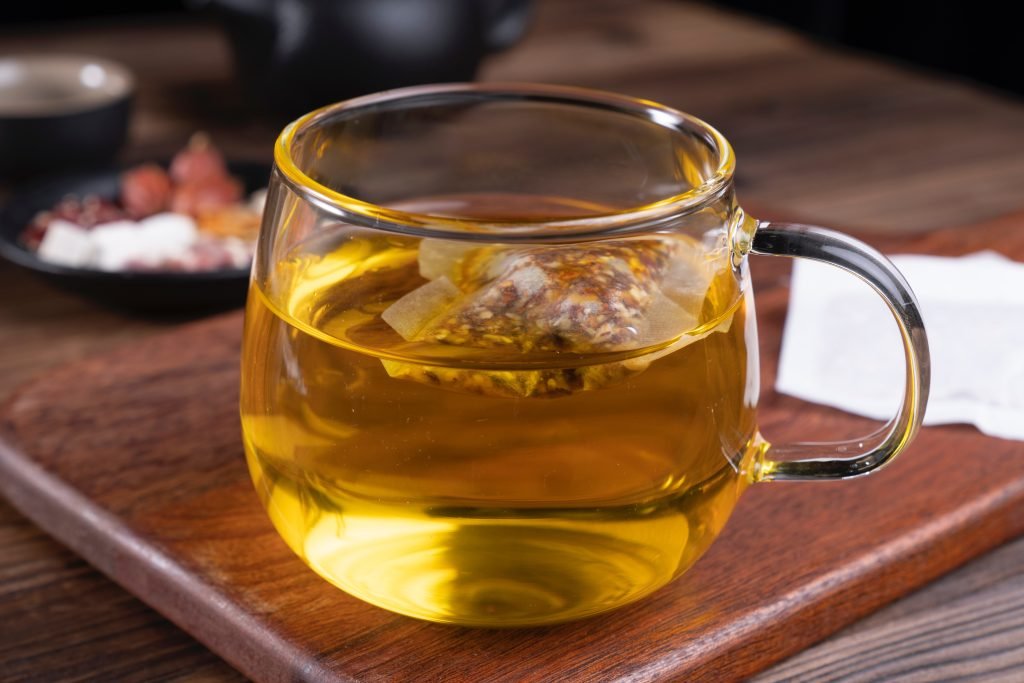Tea possesses potential benefits for scalp and hair health, although it lacks conclusive evidence as a dependable method for eradicating dandruff.
Dandruff, a prevalent scalp issue, arises from various factors including dryness, yeast overgrowth, and inflammation.
While specific tea types harbor antioxidants and anti-inflammatory elements that might alleviate scalp discomfort, they are improbable to completely eliminate dandruff by themselves.
That being said, tea rinses could contribute to enhancing hair and scalp condition overall.
For instance, green tea rinses have exhibited the ability to stimulate hair growth and decrease scalp inflammation, whereas black tea rinses can enhance hair shine and strength.
Should you encounter dandruff or related scalp conditions, seeking guidance from a dermatologist or healthcare professional is advisable.
They can pinpoint the underlying causes of your symptoms and suggest the most suitable remedies tailored to your specific requirements.
Understanding Dandruff’s Origins
Dandruff, causing scalp flakiness and itchiness, stems from a blend of elements. These include:
Yeast Overgrowth: Dandruff can arise from the overgrowth of Malassezia, a fungus akin to yeast. Though naturally occurring on the scalp, it can become overly abundant in certain individuals, leading to inflammation and dandruff.
Dry Scalp: Dandruff can result from excessively dry scalp conditions, causing itchiness and flaking.
Sensitivity to Hair Products: Some individuals might have sensitivity to specific hair care items like shampoos, conditioners, and styling products, resulting in scalp irritation and dandruff.
Skin Conditions: Conditions like psoriasis and eczema can trigger dandruff through inflammation, causing the scalp to become dry and flaky.
Diet: While not definitively established, some studies suggest that diet could play a role in dandruff development. Consuming a diet rich in sugar and unhealthy fats while lacking in nutrients might contribute to dandruff.
Tea and Infusions for Dandruff Management
Although tea alone doesn’t guarantee dandruff elimination, certain teas and herbal infusions possess properties that could enhance scalp health and decrease inflammation. Several options include:
Green Tea: Abundant in antioxidants that combat inflammation and encourage healthy hair growth, green tea rinses could alleviate irritation and dandruff. Making a green tea rinse involves steeping green tea bags in hot water for 5-10 minutes, cooling the liquid, and applying it to the scalp post-shampooing.
Peppermint Tea: With menthol content offering a cooling and soothing impact on the scalp, peppermint tea might reduce inflammation and ease itchiness. Preparing a peppermint tea rinse entails steeping peppermint tea bags in hot water for 5-10 minutes, cooling the liquid, and applying it post-shampooing.
Chamomile Tea: Boasting anti-inflammatory properties, chamomile tea may soothe an irritated scalp. A chamomile tea rinse involves steeping chamomile tea bags in hot water for 5-10 minutes, cooling the liquid, and applying it post-shampooing.
Rosemary Infusion: Rosemary’s antimicrobial and anti-inflammatory traits might alleviate dandruff and scalp discomfort. Crafting a rosemary infusion entails steeping fresh rosemary sprigs in hot water for 5-10 minutes, cooling the liquid, and applying it post-shampooing.
It’s crucial to remember that while these teas and infusions can enhance scalp health, they might not be a complete solution for dandruff eradication.
For persistent dandruff or other scalp concerns, consulting a dermatologist or healthcare professional is the best course of action.
In conclusion, tea is not a guaranteed dandruff remedy. However, certain teas and herbal infusions hold the potential to enhance scalp health and reduce inflammation.
Green tea, peppermint tea, chamomile tea, and rosemary infusions are among the options that could alleviate irritated scalp and diminish dandruff.
Nonetheless, it’s crucial to acknowledge that these remedies cannot substitute proper medical treatment for ongoing dandruff or related scalp issues.
Consulting a dermatologist or healthcare provider remains the recommended approach for accurate diagnosis and treatment.
Furthermore, maintaining a nutritious diet and proper hair care regimen can contribute to improved scalp health and reduced dandruff occurrences.
With the appropriate approach, maintaining a healthy, dandruff-free scalp is attainable.
MEDICAL DISCLAIMER
Hummingbirdtearoom.com cannot and does not contain medical/health advice. The medical/health information is provided for general and educational purposes only and is not a substitute for professional advice.


